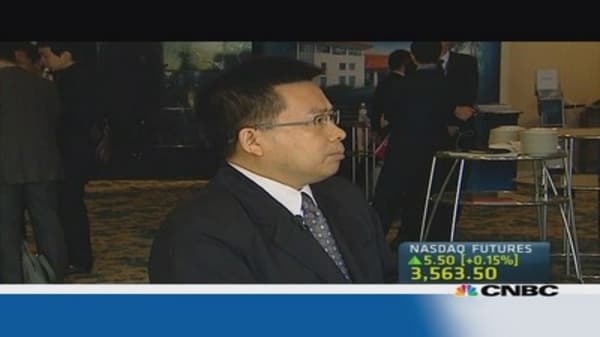China's equally ambiguous initial overtures about possibilities of a joint development of an area apparently rich in energy and mineral resources may have also contributed to misunderstandings about the parties' true intentions and the actual room for negotiations.
Things are much clearer now. After years of intense diplomacy and streams of business and official envoys, the two countries appear to have concluded that a negotiated settlement is beyond reach.
And the Japanese businesses got the message. Last year, their direct investments in China fell 18 percent from 2012, but they doubled in Southeast Asia. A recent survey showed that things would get worse: Nearly half of Japanese companies were not contemplating any direct investments in China. Some of them said that they were deterred by rising wages (labor costs in Vietnam were reported to be less than a half of those in China), but the main reason was a rising political risk for Japanese businesses operating in China.
It is, therefore, just a matter of time until the bilateral trade goes the same way. Japanese direct investments and servicing of their manufacturing facilities in China have stimulated exports of machinery, equipment and production inputs. But with their declining manufacturing in China, these exports will vanish. Apart from that, Japanese companies will find it increasingly difficult to compete, via exports, with local producers and suppliers from Europe and the United States.
Islands conflict goes global
Meanwhile, the Sino-Japanese territorial dispute is likely to worsen as it becomes an acute problem of international peace and security.
Las week's G-7 meeting in Brussels, Belgium issued a statement saying that this group of countries was "deeply concerned by tensions in the East and South China Sea," and that they "oppose any unilateral attempt by any party to assert its territorial or maritime claims through the use of intimidation, coercion or force." The finger, obviously, was pointed at China. A week ago, the U.S. Secretary of Defense Chuck Hagel said that China "has undertaken destabilizing, unilateral actions asserting its claims in the South China Sea."
Read More Japan automakers get fast and furious in China
Recognizing that the G-7 involvement is a politically dangerous turn of events, China's reaction was swift and ferocious: "External countries should respect objective facts … rather than stirring up tensions and creating divisions," and "China will make a resolute response to any provocative attempts by a few nations to intentionally infringe upon China's territorial sovereignty … and jeopardize maritime peace and stability."
Since the U.S. is party to this East Asian dispute by virtue of its defense treaty with Japan and its security commitments to friends and allies in the region, it seems inevitable that Washington should expect negative implications for its economic ties with China. And, just as in the case of the conflict with Russia about Ukraine, it is unlikely that Europe will follow the U.S. in any escalation of hostilities with China. With about €145 billion ($197.8 billion) worth of exports to China, all major EU countries, Germany in particular, will be very reluctant to create trouble with the Middle Kingdom.
Investment thoughts
I am not counting on cool heads to stave off the creeping confrontation with China. I think that the pot will keep boiling until China's growing economic power significantly strengthens its bargaining position. In the meantime, minor accidents along the way are likely, but a generalized regional warfare – or worse – seems to me as an outcome with a very low probability.
Barring an unlikely diplomatic breakthrough, Japan's sales to China – representing nearly one-fifth of total Japanese exports – are bound to decline. That will have an adverse impact on Japanese economy at the time when its flagging domestic demand will need some help from stronger exports.
The U.S. may also experience economic difficulties in its China trade. President Obama's "new model of China relations" that is supposed to "build on cooperation, manage competition and avoid rivalry" will be severely tested. China's holdings of U.S. Treasury securities in March were down 3.4 percent from last November and virtually unchanged from the year earlier.
Michael Ivanovitch is president of MSI Global, a New York-based economic research company. He also served as a senior economist at the OECD in Paris, international economist at the Federal Reserve Bank of New York and taught economics at Columbia.
Follow the author on Twitter @msiglobal9





